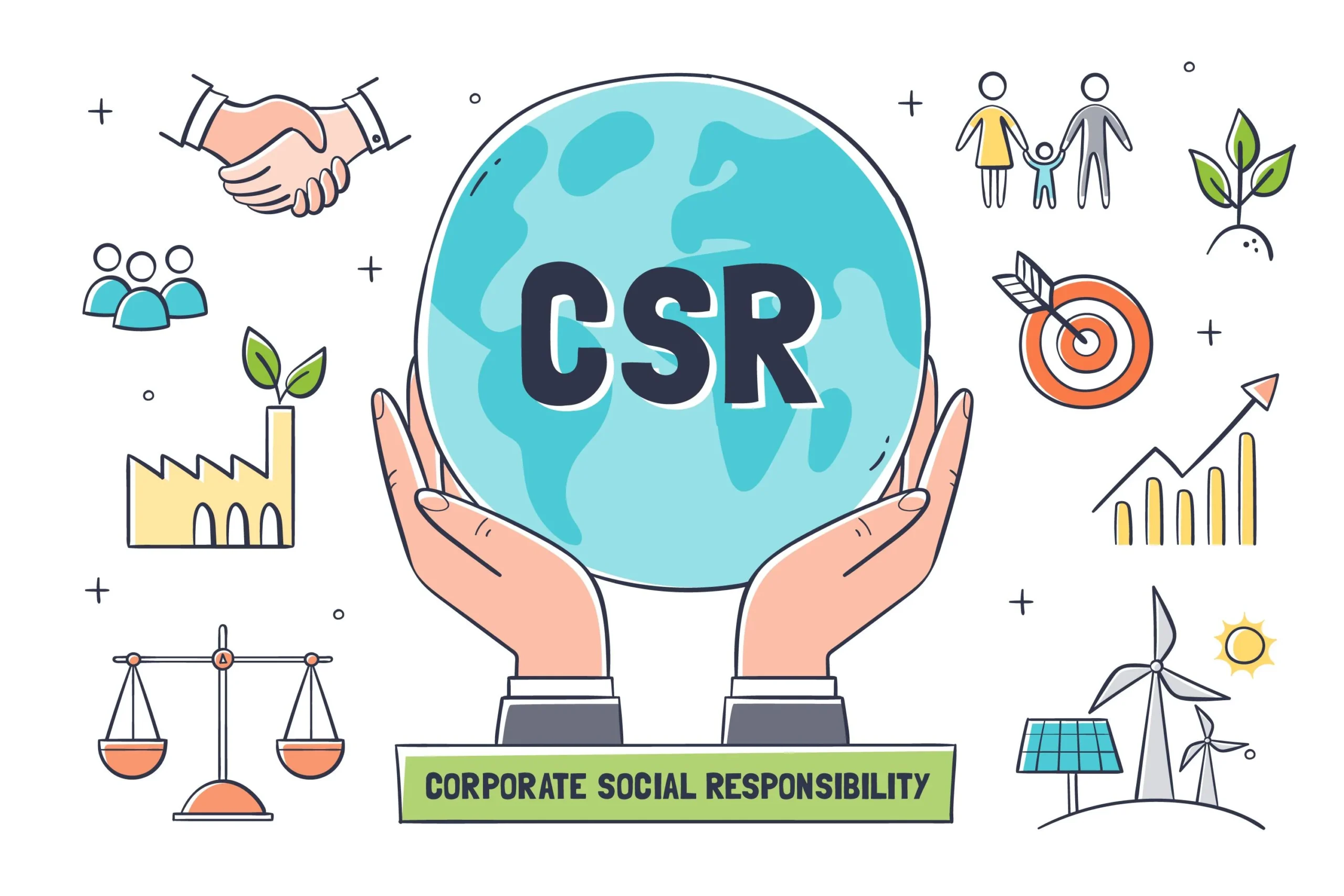In recent years, Corporate Social Responsibility (CSR) and sustainability have evolved from mere buzzwords to fundamental aspects of business strategy. As global awareness of environmental and social issues grows, organizations are increasingly integrating CSR and sustainability into their core operations. This article explores the latest trends in CSR and sustainability, highlighting how businesses are adapting to meet the demands of a changing world.
Understanding CSR and Sustainability
Before diving into the trends, it’s important to define what CSR and sustainability mean in the context of modern business practices.
What is Corporate Social Responsibility (CSR)?
Corporate Social Responsibility (CSR) refers to a company’s commitment to operate in an ethical manner, taking into account its impact on society and the environment. This includes actions that benefit communities, promote fair labor practices, and ensure ethical governance. CSR aims to create a positive impact beyond profit-making and foster goodwill among stakeholders.
What is Sustainability?
Sustainability in business involves practices that meet current needs without compromising the ability of future generations to meet their own needs. It encompasses environmental stewardship, social equity, and economic development. Sustainability focuses on reducing environmental footprints, conserving resources, and promoting practices that support long-term ecological balance.
Emerging Trends in CSR and Sustainability
Increased Focus on Environmental Sustainability
Climate Action and Carbon Neutrality
One of the most prominent trends in sustainability is the commitment to climate action and achieving carbon neutrality. Many companies are setting ambitious targets to reduce greenhouse gas emissions, invest in renewable energy, and offset their carbon footprints. This trend is driven by both regulatory pressures and consumer demand for environmentally responsible practices.
Circular Economy Practices
The concept of a circular economy is gaining traction as companies seek to minimize waste and maximize resource efficiency. This involves designing products for longevity, encouraging recycling and reuse, and implementing take-back programs. By transitioning from a linear model of production and consumption to a circular one, businesses aim to reduce their environmental impact and create sustainable value.
Emphasis on Social Responsibility
Diversity, Equity, and Inclusion (DEI)
Diversity, equity, and inclusion (DEI) are at the forefront of social responsibility trends. Organizations are increasingly focusing on creating diverse and inclusive workplaces, addressing systemic inequalities, and promoting fair treatment for all employees. DEI initiatives often include implementing inclusive hiring practices, providing diversity training, and supporting employee resource groups.
Ethical Supply Chain Management
Ethical supply chain management is another growing trend in CSR. Companies are scrutinizing their supply chains to ensure that suppliers adhere to fair labor practices, environmental standards, and ethical sourcing. This includes conducting regular audits, engaging with suppliers on sustainability goals, and promoting transparency throughout the supply chain.
Integration of CSR into Business Strategy
Strategic CSR Initiatives
Businesses are increasingly integrating CSR into their overall business strategies rather than treating it as a standalone function. Strategic CSR involves aligning social and environmental goals with business objectives, creating value for both the company and its stakeholders. This approach ensures that CSR efforts are impactful and contribute to long-term business success.
Reporting and Transparency
Transparency and accountability are key components of modern CSR practices. Companies are enhancing their reporting mechanisms to provide stakeholders with clear, comprehensive information about their CSR and sustainability efforts. This includes publishing detailed sustainability reports, disclosing environmental and social impacts, and engaging in third-party evaluations.
Technology and Innovation in CSR
Leveraging Technology for Sustainability
Technology is playing a crucial role in advancing CSR and sustainability efforts. Companies are utilizing innovations such as blockchain for supply chain transparency, data analytics for resource management, and artificial intelligence for optimizing energy usage. These technologies enable businesses to track their environmental impact, improve efficiency, and drive sustainable practices.
Green Innovation
Green innovation refers to the development of new products, services, and processes that have a positive environmental impact. This includes innovations in renewable energy, waste reduction, and sustainable materials. Companies are investing in research and development to create green technologies that support their sustainability goals and meet consumer demands for eco-friendly solutions.
Challenges and Opportunities in CSR and Sustainability
Overcoming Implementation Challenges
Cost and Resource Constraints
One of the challenges organizations face in implementing CSR and sustainability initiatives is the cost. Developing and maintaining sustainable practices can require significant investment in technology, training, and infrastructure. Companies must balance these costs with the potential benefits and find innovative ways to integrate sustainability into their operations efficiently.
Measuring Impact
Measuring the impact of CSR and sustainability initiatives can be complex. Companies need to establish clear metrics and indicators to assess the effectiveness of their efforts. This requires robust data collection and analysis, as well as a willingness to adapt and refine strategies based on performance outcomes.
Seizing Opportunities for Growth
Enhancing Brand Reputation
Effective CSR and sustainability practices can enhance a company’s brand reputation and build consumer trust. By demonstrating a genuine commitment to social and environmental issues, businesses can differentiate themselves in the marketplace and attract customers who value corporate responsibility.
Attracting and Retaining Talent
A strong CSR and sustainability focus can also help attract and retain top talent. Employees increasingly seek employers who align with their values and demonstrate a commitment to making a positive impact. By fostering a culture of responsibility and sustainability, organizations can create a more engaged and motivated workforce.
Conclusion
The landscape of Corporate Social Responsibility and sustainability is evolving rapidly, driven by growing awareness of environmental and social issues. Organizations that embrace these trends and integrate CSR and sustainability into their core strategies will not only contribute to a better world but also gain a competitive advantage. As businesses navigate the complexities of implementing these practices, they must focus on transparency, innovation, and strategic alignment to achieve meaningful and lasting impact. By staying ahead of the trends and addressing challenges proactively, companies can lead the way in creating a sustainable and socially responsible future.



